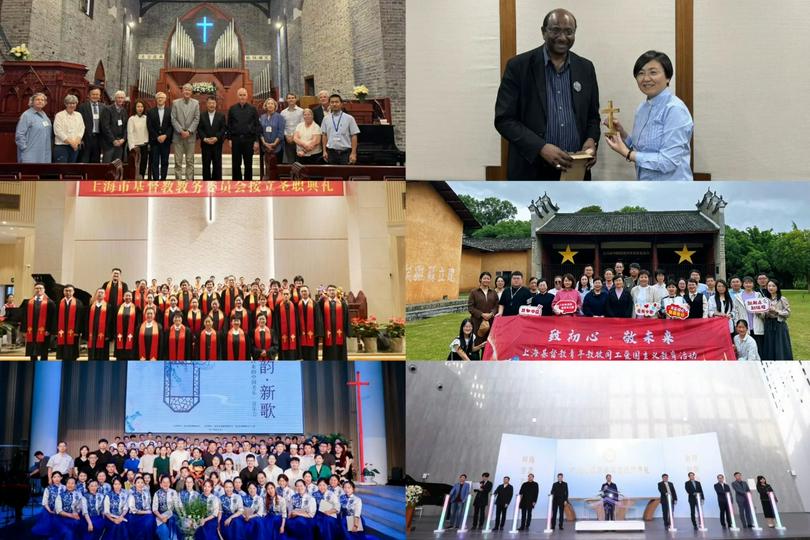As 2024 came to a close, CC&TSPMs of Beijing, Shanghai, and Guangzhou issued retrospectives summarizing major events of their local Christian communities over the past year. Leadership transitions, the advancement of the sinicization of Christianity, governance initiatives, and training programs were among the key highlights.
Leadership Elections
In 2024, leadership elections marked an important chapter for the Christian organizations in all three cities. Rev. Wu Weiqing and Rev. Liu Cuimin were elected as chairman and president of Beijing's TSPM and CC, respectively. In Shanghai, Rev. Xu Yulan and Rev. Yu Guangzhi assumed corresponding roles, while Guangzhou elected Rev. Guo Yun as TSPM chairman and Rev. Chen Suisheng as CC president.
Advancing the Sinicization of Christianity
The sinicization of Christianity campaign remained a key focus for Christian communities across these cities. To further this initiative, each city hosted high-profile seminars featuring experts and scholars. Beijing organized the second "Unity" seminar, while Shanghai held the Christian parallel forum as part of the "Hai Shang Lun Dao" Summit, focusing on the sinicization of China's religious administrative system. In Guangzhou, two thematic seminars explored contextualizing biblical interpretation within the Chinese context and delved into the academic study of Wu Yaozong, a pioneer in promoting Christianity's adaptation to Chinese society.
Efforts to advance the sinicization of Christianity also extended to music and religious site development. In Beijing, the "Old vs. New - Sinicization of Christian Music" illustrated the Christian church's 1,300-year history of integrating into Chinese culture. Shanghai unveiled the exhibition on Shanghai's practice of the sinicization of Christianity and a commendation event recognizing exemplary religious sites. In Guangzhou, eight churches were named the first batch of "Green and Beautiful Religious Sites in Guangzhou."
Strict Governance of Religions
Alongside the sinicization initiative, strict church governance emerged as a critical priority. Beijing held a series of thematic lectures, where eight pastors delivered sermons on maintaining order in worship in four churches in the city. Guangzhou also prioritized governance by organizing training programs for church leaders, focusing on themes such as the spirit of the 20th Party Congress, religious policies, and internal church management systems.
Training and Education
Training and education played a pivotal role in strengthening the foundation of the Christian communities. In Beijing, 14 sessions of the "Yanjing Forum" provided deep explorations into Christian doctrine, societal contributions, and cultural heritage. The city also conducted specialized ministry training, such as financial management and media work. Shanghai organized a citywide retreat for pastors and church staff. Guangzhou celebrated the first graduation of its pastoral training program, while Zhaoshi Academy offered over 30 courses in 2024, attracting more than 1,750 participants and awarding completion certificates to 806 students.
Ordination and Infrastructure Development
Ordination ceremonies and infrastructure development also shaped the year's achievements. In Beijing, two pastors were ordained, Zhushikou Church reopened, and the reconstruction of Changxindian Church property began. Shanghai ordained 13 pastors and five elders, while Guangzhou marked the opening of a new church in Panyu District.
The year also saw celebrations for the 75th anniversary of the founding of the People's Republic of China, with all three cities hosting commemorative events.
On the international front, Shanghai welcomed Rev. Jerry Pillay, general secretary of the World Council of Churches.
In addition, the Jiangsu Provincial Ethnic and Religious Affairs Committee reviewed Jiangsu's Christian activities in 2024 across five areas: theoretical studies, new practices in the Sinicization of Christianity, organizational development, talent cultivation, and international exchanges and charitable initiatives.












